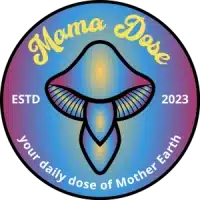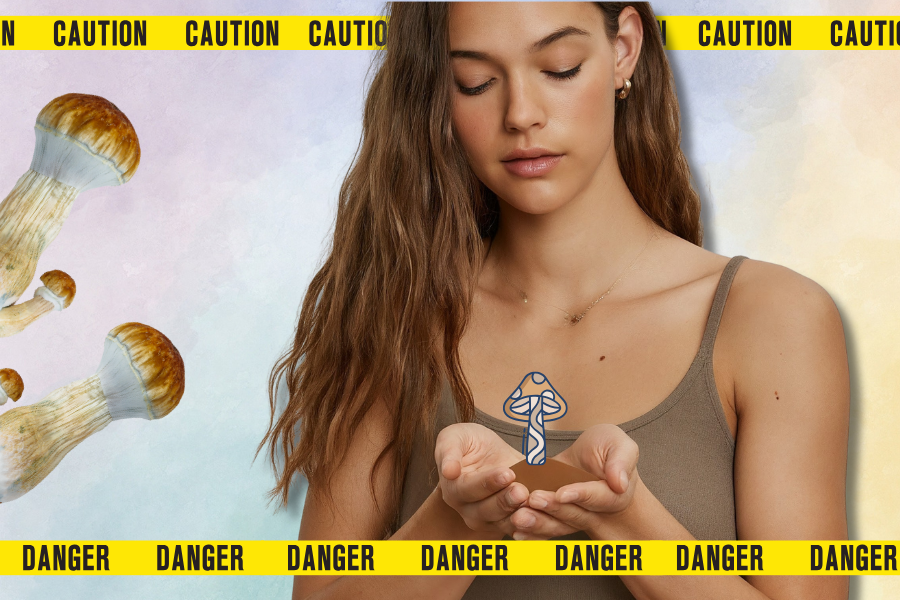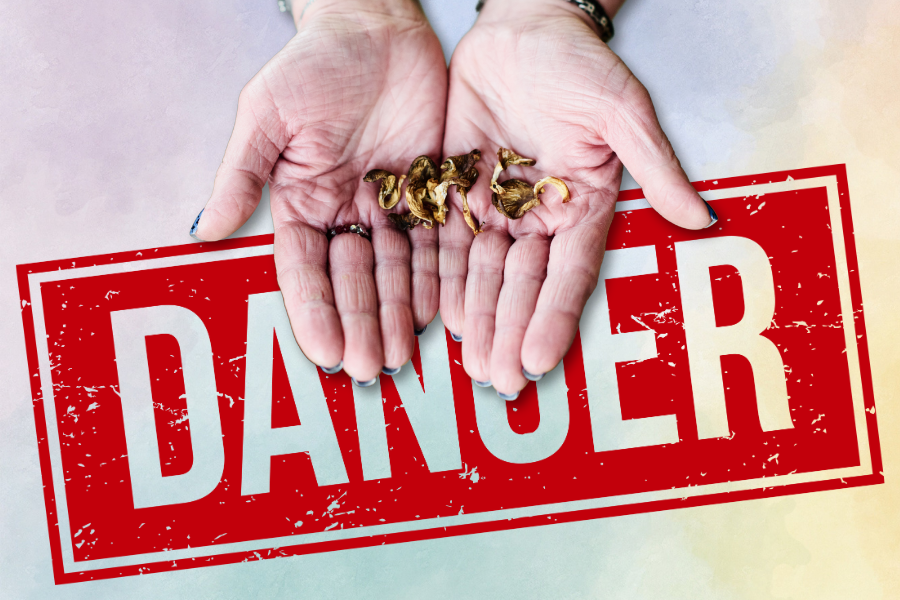

Table of Contents
Toggle
Microdosing psilocybin is often seen as a gentle way to boost mood, sharpen focus, or spark creativity. But there’s another side to it that rarely gets enough attention. Along with the potential benefits come real risks that can affect your mind, body, and even how your current medications work. Before you add microdosing to your routine, it’s worth knowing what could go wrong, and how to protect yourself if you decide to try it.
Microdosing involves taking very small, sub-hallucinogenic doses of psilocybin, the active compound in magic mushrooms. Typically, a microdose is about 1/10th to 1/20th of a standard recreational dose, often ranging from 0.1 to 0.3 grams of dried mushrooms. Unlike a full psychedelic experience, microdosing aims to produce subtle effects, such as improved mood, heightened creativity, or increased focus, without causing hallucinations or intense perceptual changes.
Many believe microdosing can boost mood, unlock creativity, and fuel personal growth. But curiosity shouldn’t come at the cost of caution. The truth is, research is still catching up, and the full picture of its safety isn’t clear yet. If you’re drawn to the promise of psilocybin microdosing, it’s just as important to understand the risks before you start experimenting.
While microdosing is often described as low-risk compared to full-dose psychedelic use, it can still pose challenges. Below, we break down the key risks, including psychological, physical, and long-term concerns, as well as interactions with medications.
Microdosing psilocybin can shift your mental and emotional state in ways that aren’t always easy to predict. While some feel more uplifted or focused, others run into uncomfortable psychological effects, including:
Though microdoses are small, they can still cause physical reactions. Common physical side effects of psilocybin microdosing include:
Nausea and Digestive Discomfort: Some users report mild nausea, stomach upset, or bloating after taking psilocybin, even at low doses. These effects are typically short-lived but can be unpleasant.
Increased Heart Rate and Blood Pressure: Psilocybin can stimulate the cardiovascular system, leading to a slightly elevated heart rate or feelings of restlessness.
Headaches or Fatigue: Some users experience mild headaches or feelings of tiredness after microdosing, potentially due to the body’s response to the compound or slight overstimulation of serotonin receptors.
These physical side effects of psilocybin are generally mild but can be bothersome, particularly for those sensitive to bodily changes.
Psilocybin microdosing drug interactions are a significant concern, particularly for individuals taking prescription medications. Psilocybin affects serotonin receptors, which can lead to complications when combined with certain drugs.
Antidepressants and Anti-Anxiety Medications: Selective serotonin reuptake inhibitors (SSRIs) and other antidepressants can interact with psilocybin, potentially reducing its effects or causing unexpected side effects. In rare cases, combining psilocybin with SSRIs could contribute to serotonin syndrome, a potentially life-threatening condition characterized by agitation, rapid heart rate, and confusion.
Monoamine Oxidase Inhibitors (MAOIs): MAOIs, used for depression or Parkinson’s disease, can amplify psilocybin’s effects, increasing the risk of adverse reactions.
Other Substances: Combining psilocybin with alcohol, cannabis, or stimulants can lead to unpredictable effects, such as increased anxiety or overstimulation.
The long-term effects of microdosing psilocybin remain largely unknown due to limited research. While short-term studies suggest relative safety for most users, sustained use raises questions.
Unknown Physiological Effects: Regular microdosing may subtly alter brain chemistry or cardiovascular function over time, but no large-scale studies have confirmed these risks.
Tolerance and Diminishing Returns: Some users report needing higher doses over time to achieve the same effects, which could increase the risk of side effects.
Lack of Regulation: Psilocybin is illegal in many regions, and sourcing mushrooms from unregulated markets increases the risk of contamination or inconsistent dosing.
Until more long-term research comes to light, the lasting effects of microdosing remain a question mark. It’s wise to treat the practice as experimental, something to approach with care, curiosity, and clear boundaries rather than a daily habit done on autopilot.

If you’re thinking about microdosing psilocybin, it’s important to take steps that reduce potential risks. . Begin with the lowest possible dose, like 0.1 grams of dried mushrooms, and take your time adjusting. There’s no rush. Keep track of how you feel both physically and mentally by journaling after each dose. This helps you recognize patterns and decide if microdosing is actually working for you.
Always choose a calm and familiar setting when microdosing, since your environment plays a big role in how the experience unfolds. Also, be aware of the legal status of psilocybin where you live, laws vary and can carry serious consequences. If possible, work with a therapist or integration coach who understands plant medicine and can support your growth along the way. For a more in-depth look at safe and mindful microdosing, check out Mama Dose’s Guide to Microdosing.
Watch this video for a multimedia perspective on the risks of microdosing psilocybin.
Microdosing psilocybin may offer benefits for some, but it’s far from a guaranteed fit for everyone. From heightened anxiety to possible medication interactions, the risks are real and worth taking seriously. The more informed and intentional you are, starting low, staying mindful, and seeking professional guidance, the better equipped you’ll be to decide if it belongs in your wellness routine.
Invite your friends and earn a discount on your next purchase. Your friend also earns a discount! Get started now, by sharing your referral link with your friends.
This item is currently out of stock!
By adding it to your cart, you confirm a backorder purchase, and we will ship it as soon as it becomes available.